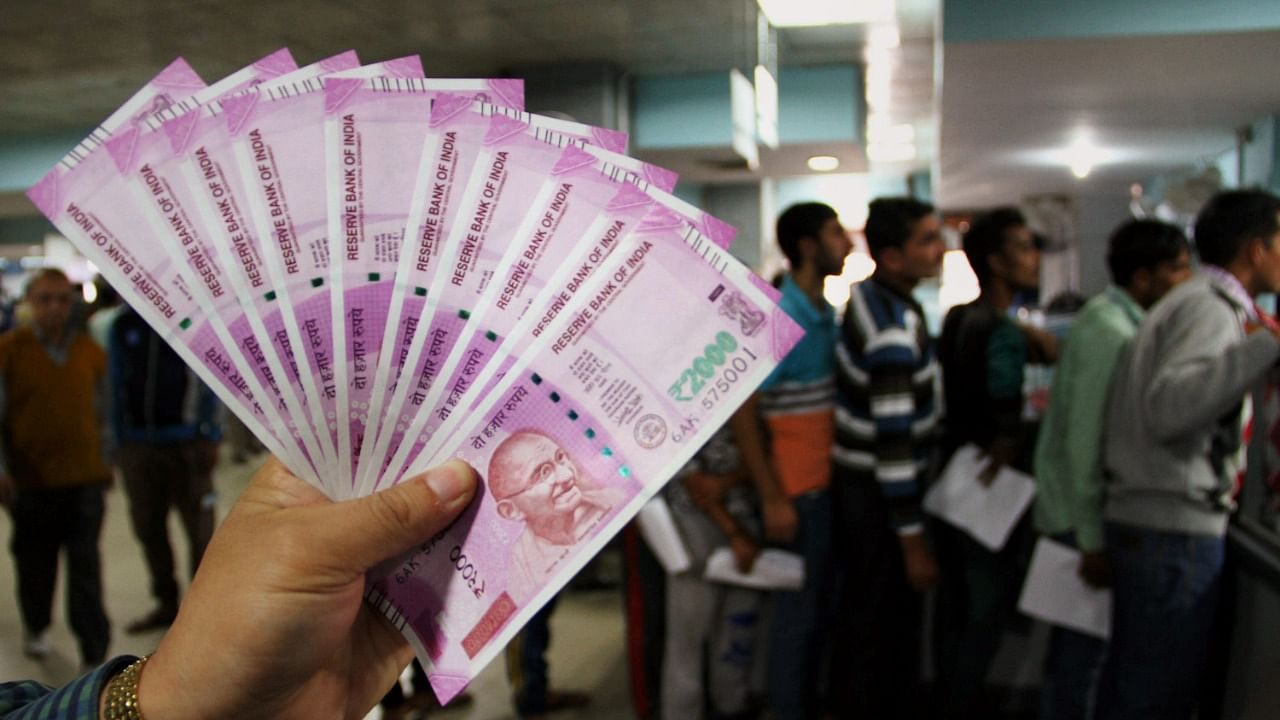
The Reserve Bank of India (RBI) on Friday announced the withdrawal of Rs 2,000 currency notes from circulation adding that the currency will continue to be a legal tender till September 30, 2023.
The journey of the Rs 2,000 note was short-lived as it came into being in 2016 after demonetisation of Rs 500 and Rs 1,000 notes and now, within a few months, will be phased out of circulation.
Also read: 'First act, second think': Cong slams 'Vishwaguru' Modi over withdrawal of Rs 2,000 notes
Here’s everything you need to know about this move and the consequences that will arise out of this.
What exactly has happened
RBI has announced the withdrawal of Rs 2,000 currency notes from circulation, advising banks to stop issuing Rs 2,000 denomination notes with immediate effect.
Why RBI has taken this step
The note was issued to fill in for the currency requirements in the wake of the demonetisation of Rs 500 and Rs 1,000 banknotes in 2016. As per the RBI, since the requirements were fulfilled, the printing of the Rs 2,000 banknotes was stopped in 2018-19.
The bank said that a majority of the Rs 2,000 denomination notes were issued prior to March 2017 and are at the end of their estimated life-span of 4-5 years. As per the RBI, the move has been taken in pursuance of the “Clean Note Policy”.
The bank also reasoned that the denomination was not commonly used for transactions and the stock of banknotes in other denominations was adequate to meet the currency requirement of the public.
What is the ‘Clean Note Policy’
It is a policy adopted by the RBI to ensure availability of good quality banknotes to the public.
Will Rs 2,000 note stop being a legal tender
It will continue to maintain its legal tender status only till September 30. The RBI has asked people to deposit and/or exchange these banknotes on or before September 30, 2023.
How to exchange Rs 2,000 notes
If you possess these banknotes, you can approach bank branches for deposit and/or exchange them.
As per the RBI, the facility for deposit into accounts and exchange for Rs 2,000 banknotes will be available at all banks until the deadline of September 30, 2023.
A non-account holder also can exchange Rs 2,000 banknotes up to a limit of Rs 20,000/- at a time at any bank branch.
How many Rs 2,000 notes can be exchanged in one transaction
One can only exchange Rs 2,000 banknotes upto to a limit of Rs 20,000/- at a time. That means, at once you can only exchange a total of 10 such notes.
From when and till when exchange of Rs 2,000 note will be allowed
According to the RBI, these notes can be exchanged from May 23, 2023, till September 30, 2023. RBI has tried to give time to the banks to make preparatory arrangements for such exercise by then.
Is there any fee to be paid for the exchange facility
No. The exchange facility shall be provided free of cost.
Can Rs 2,000 banknotes be exchanged through Business Correspondents
Yes, exchange of Rs 2,000 banknotes can be made through Business Correspondents upto a limit of Rs 4,000/- per day for an account holder.
What if someone needs more than Rs 20,000/- cash for business or other purposes
Deposit into accounts can be made without restrictions. The Rs 2,000 banknotes can be deposited into bank accounts and cash requirements can be drawn thereafter, against these deposits.
Will there be special arrangements for senior citizens, persons with disabilities, etc. for exchange and deposit
Banks have been instructed to make arrangements to reduce inconvenience to the senior citizens, persons with disabilities, etc. seeking to exchange/deposit Rs 2,000 banknotes.
What will happen if a bank refuses to exchange/accept deposit of Rs 2,000 banknote
As per the RBI, for redressal of grievance in case of deficiency of service, the complainant/aggrieved customer may first approach the concerned bank. If the bank does not respond within a period of 30 days after lodging of the complaint or if the complainant is not satisfied with the response/resolution given by the bank, the complainant can lodge the complaint under the Reserve Bank - Integrated Ombudsman Scheme (RB-IOS), 2021 at the Complaint Management System portal of RBI.
The above information has been sourced from the RBI website